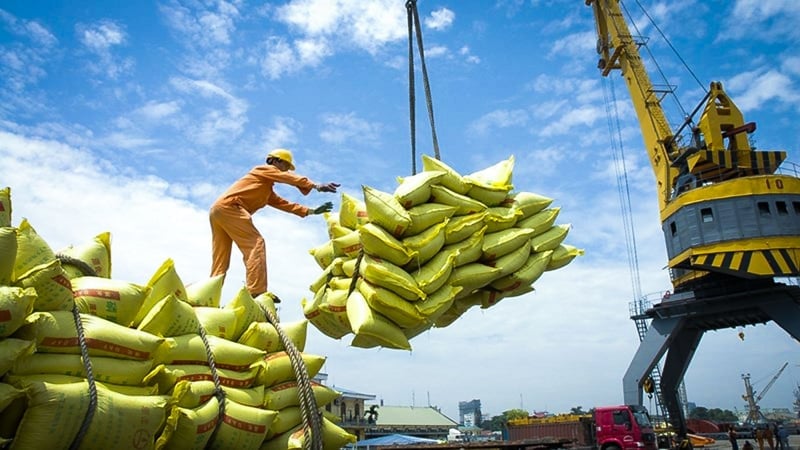November 24, 2025 | 03:11 GMT +7
November 24, 2025 | 03:11 GMT +7
Hotline: 0913.378.918
November 24, 2025 | 03:11 GMT +7
Hotline: 0913.378.918

The Ministry of Industry and Trade is finalizing a draft amendment to Circular No. 30/2018/TT-BCT on rice export trading, focusing on streamlining reporting procedures and removing outdated regulations. Photo: Minh Anh.
Vietnam's Ministry of Industry and Trade is finalizing a draft amendment to Circular No. 30/2018/TT-BCT on rice export business, focusing on streamlining reporting procedures and eliminating outdated regulations.
One of the new features in this draft is the adjustment of the timeline for submitting periodic reports. Accordingly, rice exporters will submit reports on the status of contract signing and implementation by the 20th of each month, instead of the current scattered deadlines. Standardizing the reporting deadline helps simplify administrative procedures and gives businesses more flexibility in compiling and submitting information. Moreover, it also facilitates the work of regulatory agencies in monitoring, evaluating the actual situation, and issuing timely support policies.
Additionally, rice exporters will be required to submit monthly inventory reports by the 5th of each month, detailing the volume of paddy and rice in stock, categorized by type and grade (white rice, fragrant rice, sticky rice, etc.). This data must be sent simultaneously to Ministry of Industry and Trade, Departments of Industry and Trade, and Vietnam Food Association.
Enterprises will also be required to submit inventory reports through an electronic software system developed by the Ministry of Industry and Trade. During the transition period (from January 1, 2025, until the software is officially operational), businesses must continue to update data and may send temporary reports via email (in case of system errors).
It is known that the new draft Circular also assigns the Department of E-commerce and Digital Economy to coordinate with the Department of Import and Export in developing specialized reporting software for the rice industry. This software not only supports management tasks but also serves as a stepping stone for the digitization of agricultural exports, a long-term direction of the Ministry of Industry and Trade.
Translated by Huong Giang

(VAN) The agricultural sector is finalizing the strategic framework for emission reduction, setting the goal of sharply cutting methane and 403.7 million tons of CO2 equivalent and moving toward Net Zero by 2050.
/2025/11/22/2236-1-153832_483.jpg)
(VAN) The National Marine Spatial Planning is opening up opportunities for sustainable blue sea development across 21 coastal localities.

(VAN) Viet Nam’s forestry sector is undergoing a comprehensive transformation, strengthening management, protection, and development efforts to maintain ecological security and drive green, sustainable growth.

(VAN) Viet Nam is accelerating efforts to digitize reservoir operations, from real-time data to hydraulic modelling.
/2025/11/21/3348-2-102623_454.jpg)
(VAN) National Assembly delegate Nguyen Thi Lan has proposed adding special mechanisms to attract human resources to the agricultural, forestry, and fishery sectors, addressing the shortage of high-quality personnel.

(VAN) Over the past two decades, the unified legal framework for water resource management has been perfected, becoming a crucial foundation for ensuring national water security.

(VAN) The land-data cleansing campaign in Dien Bien is entering its final stretch, yet weak infrastructure, limited personnel and fragmented multi-period datasets continue to create major obstacles.